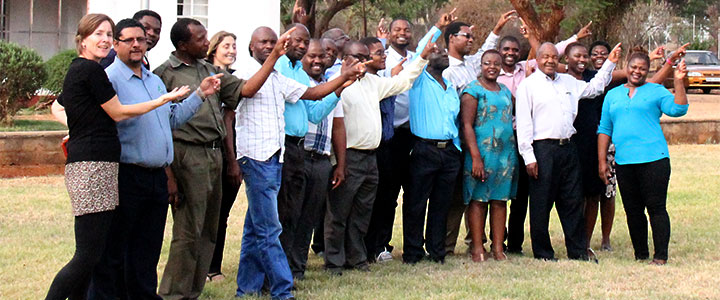
Stakeholders from district to national scales in Zimbabwe met with AgMIP researchers on revising pathways that reflect trade-offs between environmental priorities and fast economic growth, useful for decision makers thinking about the future of farming in Zimbabwe. Photo: S Homann-Kee Tui
Stakeholder engagement in AgMIP is the process of designing, facilitating and documenting conversations around scientific inputs and outputs between scientists and communities of decision makers—from farm to policy levels.
The main objectives of stakeholder engagement for the AgMIP project were to incorporate stakeholder points of view in the models, develop future scenarios, and to refine and share AgMIP findings and outputs. Stakeholders were selected after a careful analysis of those who had specific interests in the project and those who, through their actions, could positively affect the outcomes of the project
Studies indicate that conventional pipeline-style information delivery approaches fail to inform complex decisions. Making science usable and relevant requires a structured process for on-going stakeholder feedback & modification. Iterative processes must be designed to create learning environments where scientists and practitioners can exchange knowledge and build dialog. By clearly understanding stakeholder needs and learning together, teams can respond and modify AgMIP research outputs, making them more relevant to the target audiences engaged. By involving stakeholders in an on-going journey, teams can move beyond informing/consulting to building partnerships and empowering user groups.
